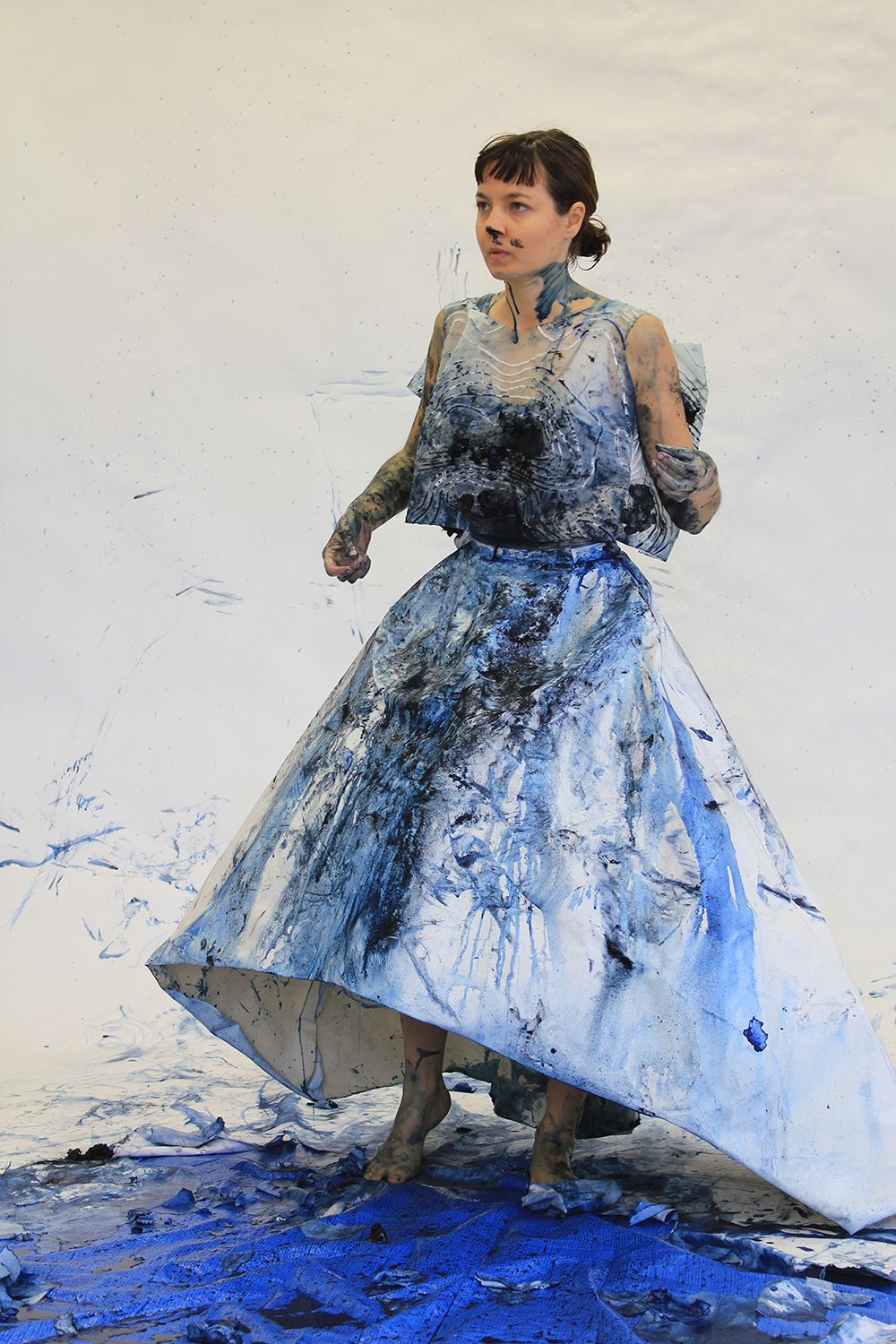The latest LCFMA16 Graduate Spotlight turns to MA Costume Design for Performance student Ester Mangas, the Spainish-born costume designer is on the verge of finishing completing her masters. The costume students have been rehearsing in the build-up to their stage performance at Sadler’s Wells in January 2016. LCF News caught up with Ester during one of her rehearsals to see the costume and performance, discuss London College of Fashion and what advice she’d give to any students thinking of a future in West End theatres or costume design for movies.
Where and what did you study prior to your MA at LCF?
I studied BA Theatre Arts (Design and Performance) at Middlesex University.
What made you want to study an MA?
During my BA I explored and worked on all areas involved in theatre production, from performing to designing and devising. This gave me a strong understanding of performance as a whole. However, I wished to explore costume as a performance medium in itself, as a way of expression and visual narrative without the need of a script or even a story line.
Tell us about your final project?
My final MA project is an investigation of costume as an aspect of performance, where the art itself is questioned. I have carried research on the field of theatre, performance and art and how these terms are intrinsically united as part of the same artistic medium but also how they diverge in opposing directions, both aesthetically and ideologically. The ephemeral qualities of performance are at the center of my project: each act of performance is ephemeral to the individual audience member and to the performer. I wanted to make the objects involved in the performance ephemeral too.
What are you producing for the MA Costume show?
I am producing a costume which undergoes a metamorphosis through each performance. The costume starts as a white skirt, a blank slate in which depending on the performer’s movement, the splatter pattern of blue paint is different. An individual and unrepeatable garment is produced after every performance due to factors like chance, unpredictability and improvisation, all part of live performance. I have also worked with water and dissolvable fabrics as a comment on the ephemerality and “liveness“ of performance itself.
Why did you choose LCF?
LCF offers one of the few MA Costume Design for Performance courses in the country, you also have access to LCF´s studios, technology and library services. Being part of LCF also means you have access to all the other UAL facilities that are available from sites like Central Saint Martins and Wimbledon. This means the work you produce can be as interdisciplinary as you like, with both professionals and students from other disciplines within your reach.
What are your future plans?
I wish to continue my research in the field of costume and its relationship with performance and art. The blurring lines between these disciplines is what I find fascinating but also in relation to other artistic fields such as dance, painting, music. I’d love to explore further collaborations in the future that aren’t directly related to costume.
What did you find the most interesting things about your degree? What did you also find the most challenging?
The autonomy in regard to the development of our ideas is something which is promoted and valued throughout the MA. The encouragement to find our own way of thinking but also the push towards unknown techniques outside your comfort zone is very interesting.
The opportunity to meet students with a common interest but born and trained in a completely different culture is something I have found incredibly rewarding, opening my horizons beyond the knowledge of my own craft.
The biggest challenge is to overcome your own fears and insecurities towards your art. Being able to maximize your strengths and work on your weaknesses. It is an intense learning curve, with a lot of information crammed into 15 months, but rewarding nonetheless.
What three tips would you give to anyone considering studying MA Costume?
- Do not be afraid to jump into Costume Design from a different discipline. It is a very accepting field, adapting to each designer´s strengths. A different training will give you a completely different perspective into costume, moving away from convention and tradition.
- Be open to possibility and change. Unpredictability is an essential part of performance and what makes it special – never think your first idea will be the last.
- Practice meditation.





